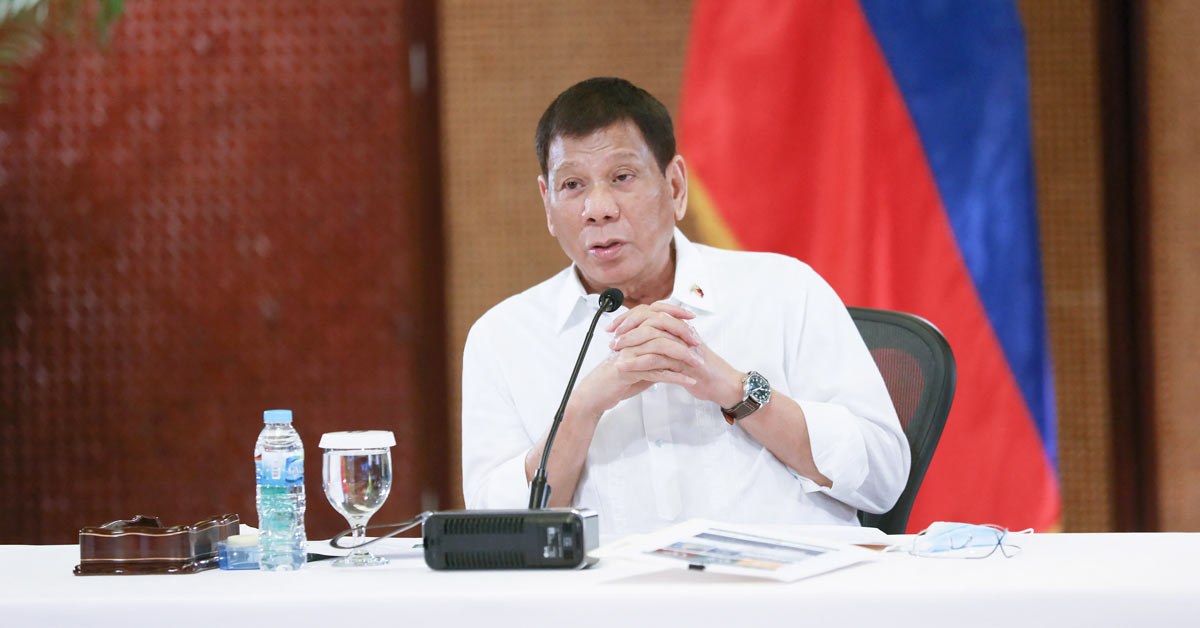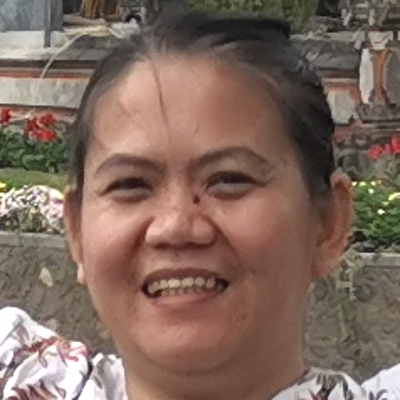A great deal of media attention both locally and internationally has been paid not only to President Rodrigo Duterte’s colourful, blunt, and impassioned statements but to his controversial “war on illegal drugs”.
However, despite Duterte’s baffling and bamboozling personality, he no doubt has successfully won the hearts and minds of Filipinos, not necessarily because his presidency has been near perfect, but because Filipinos have faith that he possesses critical leadership and authenticity.
Filipinos see Duterte as one of them. They see him as not corrupt. Duterte’s exhibition of altruism adds to his charm and appeal as the nation’s patriarch. For instance, despite his busy schedule and many responsibilities, he makes it a point to visit the country’s military troops regularly to boost their morale.
He attends wakes of slain soldiers, police officers, and other law enforcers who died performing their duties and takes care of their grieving families, something that his predecessor did not care to do. All this has endeared Duterte to the majority of Filipinos.
More than anything, Filipinos adore Duterte because of his simplicity, modesty, unpretentiousness, and humility in public service. He forbids the hanging of his portrait in government offices. He also prohibits government officials, including the office of the president to serve expensive food during government social events. He prefers simple food that an average Filipino consumes daily. Such actions depict his authentic personality and make him all the more delectable to most Filipinos.
Nevertheless, the blunt-tough talking, provocative, and controversial persona of Duterte has earned him a considerable number of political enemies and detractors, mostly belonging to the political opposition and from some segments of Philippine society. His political nemeses have hurled criticisms against him on an almost daily basis on national television and on social media.
Some of the most controversial issues that were tossed against Duterte by his political foes and detractors include the giving of the go-signal for former president and dictator Ferdinand Marcos to be buried in the “Libingan ng mga Bayani” (Heroes’ Cemetery) and the war on illegal drugs.
But surprisingly, Duterte’s political enemies have not succeeded in rallying the Filipino people to their cause. Duterte has remained popular, even as he continually graces the headlines, because of his typical but highly controversial, blunt, and straightforward remarks, and penchant for informalities.
War On Illegal Drugs
The elimination of the drug problem in the country or controversially known as the “war against illegal drugs” is one of President Rodrigo Duterte’s campaign promises during the runup to the 2016 national elections. The Duterte administration’s “war against illegal drugs” is indeed one among many controversial issues that have received a great deal of media attention both, locally and internationally.
The Duterte administration’s campaign against illegal drugs has spawned contrasting opinions among Filipinos. To his critics, Duterte's approach in exterminating illegal drugs has inflicted damage and negative consequences on human rights. According to them, the current government policy and approach in combating the country’s drug problem has neglected the state’s responsibility to protect human rights.
On the contrary, to ordinary Filipinos, Duterte is a hero, a faithful public servant, and their defender from ruthless criminals and the many evil effects of illegal drugs. Duterte supporters would argue that, though his "war on drugs" has claimed some lives during official anti-drug operations conducted by law enforcement agencies, these are inevitable casualties or consequences. For many Filipinos, the fight against illegal drugs is continuously saving many Filipinos; most especially the youth from the scourge of illegal drugs.
To a considerable extent, the fight against illegal drugs is in many ways successful, has gained traction, and made significant headway. Based on data and statistics, the “anti-illegal drugs operations” of the current administration from July 2016 to the present have gained significant results.
For instance, based on official government data, as of May 2021, the recorded anti-illegal drug operations conducted are 203,715. In these anti-illegal drug operations, over 289,000 drug users and peddlers and around 12,356 “high-value targets” were arrested while 6,117 suspects died during official anti-drug operations by various law enforcement agencies since July 2016 to date.
Another relative success in the fight against illegal drugs is the more or less 1.3 million drug dependents or surrenderers who voluntarily capitulated and yielded and have undergone drug rehabilitation and treatment. As of May 2021, around 3,736 children were also rescued from anti-illegal drug operations.
On the other hand, the total value of illegal drugs confiscated amounted to a total of PHP 59.93 billion (US$1.19 billion) worth of shabu, cocaine, marijuana, and other illegal drug substances as of May 2021. Law enforcers were also able to dismantle around 807 illegal drug dens and clandestine laboratories from July 2016 to May 2021.
Also, the relentless fight against illegal drugs has had a positive and direct impact on the peace and order situation of the country. For instance, as of June 2021, there was a decline of about 64 percent of the crime volume in the country, more particularly drug-related crimes, and significantly the streets have become safer for ordinary Filipinos.
Based on the 2020 Global Law and Order Report by international analytics firm Gallup, the Philippines is among the top 50 safest countries in the world with an index score of 84 and is tied with Australia, New Zealand, Poland, and Serbia. The country’s score in 2020 is slightly higher than the country’s 82 index score for the world in 2019. In the ASEAN region, the Philippines ranked number four while Singapore ranked number one in terms of safest countries in the region.
Furthermore, the mechanisms in the anti-illegal drugs campaign have been institutionalised under the Duterte administration through the peace and order councils in the local government units (LGUs) including the formation of anti-drug abuse councils from provinces down to the barangays (villages). This is indeed another positive development and also means that even if there would be a change in administration after the 2022 national elections, the fight against illegal drugs will carry on.
For instance, out of the 42,000 plus barangays nationwide, 41,950 or about 99.69 percent have organized BADACs (Barangay Anti-Drug Abuse Councils), and out of the 42,000 plus barangays, about 22,093 barangays have been cleared from illegal drugs as of May 2021.
Likewise, the Inter-Agency Committee Against Illegal Drugs (ICAD) aims to reduce the supply of illegal drugs through law enforcement operations but also targets to curb the demand for illegal drugs through reformation programs initiated and implemented by regional drug abuse treatment and rehabilitation centres like the Mega Treatment and Rehabilitation Center in Fort Magsaysay, Nueva Ecija.
Hence, these are positive developments that signify that indeed the peace and order situation of the country has improved significantly and are indicative of the relative successes of the persistent and unremitting anti-illegal drugs campaign carried out by the Duterte administration.
However, it is but true that after five years, the problem of illegal drugs has not been eradicated since there are still areas/communities that are afflicted by this social menace. Nevertheless, it can’t be denied that the illegal drug problem in the country has improved positively and significantly compared to the situation before 2016.
As the saying goes, numbers don’t lie and these numbers to a greater extent have brought a strong sense of comfort, security, and peace of mind to ordinary Filipinos.
Conclusion
Truth be told, the problem of illegal drugs and the goal of eliminating this menace have a long way to go because of its enormity and sheer magnitude. Thus, the fight against illegal drugs under the Duterte administration and even beyond his term is imperative.
But since the drug problem in the Philippines is multi-dimensional, deeply seated in the structural causes of poverty, inequality, and powerlessness of the Filipino people, the current Philippine government and the next administration after the 2022 national elections must ensure a more comprehensive and holistic approach and should not look at the problem of illegal drugs just as a problem of criminality and public order, but rather should also pay more attention and focus on preventive measures, treatment, rehabilitation, and the re-socialisation of drug-abusers.
In the fight against illegal drugs, the government should also continue to pursue a multi-sectoral partnership between the government, communities at the barangay level, the media, church, and civil society to ensure its effectiveness.
There’s also a need for continuous reassessment of the strategies and approaches in the fight against illegal drugs, which is a necessary thing for the government to do to determine what works and what needs to be changed.
This Is Part 3 In A Series Of Articles On The Duterte Legacy.
The views expressed in this article are the author’s own and do not necessarily reflect those of The ASEAN Post.

